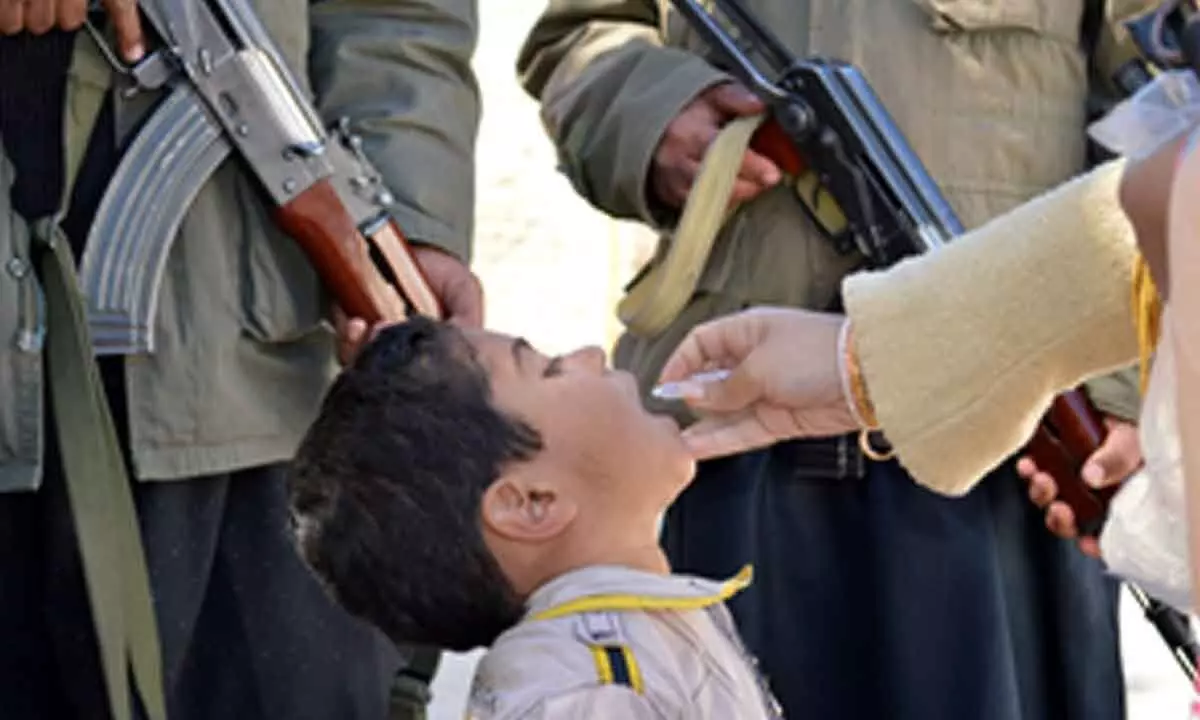Live
- Take steps to uplift tribals’ living standards: Minister Sandhya
- Gbyte Recovery Review 2025: Can It Retrieve WhatsApp Chats Without Backup?
- Coking coal production drops by 9% in May
- US Court Sides with Meta in AI Copyright Case, Citing Fair Use
- Domestic air passenger traffic rises to 1.4 crore
- Srikalahasti temple may soon get AI-powered pilgrim services
- Tirupati to get twin 5-star hotels, a dairy plant
- ‘Economy resilient amid rising global conflicts’
- Misuse of private land by govt alleged
- Grand celebrations set to mark the Golconda Bonalu in Hyderabad

Pakistan is grappling with a resurgence of polio virus as several new cases have been reported over the past few weeks. The National Institute of Health reported the country’s second case of Wild Poliovirus Type 1 (WPV1) when a sample from Sindh’s Badin district tested positive at its laboratory in Islamabad.
Islamabad: Pakistan is grappling with a resurgence of polio virus as several new cases have been reported over the past few weeks. The National Institute of Health reported the country’s second case of Wild Poliovirus Type 1 (WPV1) when a sample from Sindh’s Badin district tested positive at its laboratory in Islamabad.
Last week, environmental samples collected from 26 districts confirmed the presence of WPV1. The positive samples collected from these areas that tested positive for polio put children at huge risk of contracting the disease.
Polio is still an endemic disease in Pakistan alongside Afghanistan, the last two countries in the world where the crippling disease persists. The challenges such as security issues, vaccine hesitancy, and misinformation have slowed progress in eradicating polio in Pakistan despite global efforts, maintains Pakistani authorities.
New cases of polio virus warrant an urgent need to focus on eradication as the provinces of Balochistan, Khyber Pakhtunkhwa, and Sindh remain the worst affected areas. Political instability, poor sanitation, lack of drinking water, corrupt practices are some of the factors that have impeded the eradication process. Security concern is another factor that prevents the vaccination team from reaching target areas. Another key challenge is vaccine hesitancy where parents refuse to vaccinate children due to misinformation.
Despite diplomatic differences, India has offered Pakistan "full cooperation" for eradicating polio from its soil and said it is a "cause for concern".
To reduce the risk of the virus returning to India, polio immunization campaigns have been organised along the international borders of Pakistan, Bangladesh, Bhutan, Nepal and Myanmar. The campaign consists of special booths and vaccination to all the eligible children round the clock periodically.
Analysts believe that Pakistan should adopt an aggressive approach to tackle the situation and eradication of polio needs strong governmental measures including routine immunization, awareness creation and support to vaccinators at the frontline.

© 2025 Hyderabad Media House Limited/The Hans India. All rights reserved. Powered by hocalwire.com






